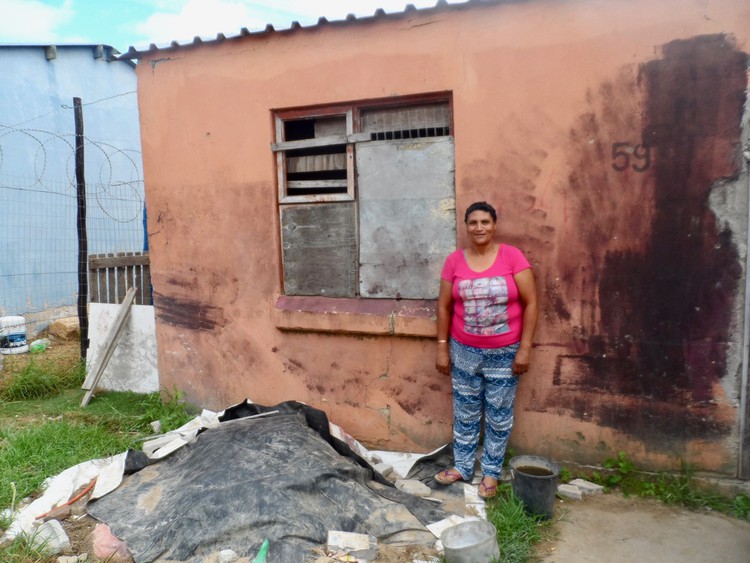PE residents homeless because of poorly built RDP houses
People have been living for a decade in temporary structures next to their waterlogged houses
Residents of Jacksonville, Port Elizabeth, say they have been living in temporary homes in the yards of their RDP houses for years because their houses were substandard and some were built on a waterlogged site. Members of 20 affected families say countless meetings with housing officials have yielded nothing.
At first, Christa Ruiters was overjoyed when she moved into her new RDP house in June 2010. But her joy was short-lived. “I was devastated after finding out that my house was built on waterlogged ground. Most of our furniture and other valuables were severely damaged by water that was seeping up from the ground,” she said.
“The municipality then gave us these temporary structures. They also assured us that the problems would be quickly fixed so we could move back into our houses. But it’s now many years,” said Ruiters.
Some of the temporary structures are now in danger of collapse. Ruiters lives with her husband and children in one that has two rooms. “The entire mobile home is gradually wearing down. The roof leaks heavily, while the floor and the walls are falling apart. I have to use cellophane to fix the cracks. The house is also very cold and wind blows in through the cracks,” said Ruiters. Recent rains damaged her stove.
Christano Coutts has been living with his two children in a similar structure for 11 years. “We are as good as not having houses,” said Coutts.
Only people whose homes were built on waterlogged land were given temporary structures. Others, such as Chairperson of the Jacksonville Area Committee Damion Daniels, live in their poorly built RDP houses. Some units had leaking roofs replaced with tiles, but Daniels’ was not fixed by the municipality.
He said the “overcrowded poorly built” structures had ignited anger. “There is no space for children to play. There is not even privacy in these houses because the mobile units have only one subdivision.”
Nelson Mandela Bay Municipality spokesperson Mthubanzi Mniki confirmed that there were about twenty houses left out of the rectification programme.
Mniki said additional funding was needed as some houses had to be demolished and rebuilt and units on the waterlogged site had to be relocated.
He said the municipality had held several meetings with the affected housing beneficiaries to inform them of budget constraints and recent budget cuts.
Mniki said the municipality was in discussions with the Eastern Cape Department of Human Settlements “to determine whether or not any possibility exists that the outstanding units can be budgeted for in the 2018/2019 financial year and or subsequent financial years”.
Support independent journalism
Donate using Payfast

Next: How a journalist took an ethical stand and risked her job
Previous: Khayelitsha residents demand justice for murdered land occupiers
© 2018 GroundUp. 
This article is licensed under a Creative Commons Attribution-NoDerivatives 4.0 International License.
You may republish this article, so long as you credit the authors and GroundUp, and do not change the text. Please include a link back to the original article.

